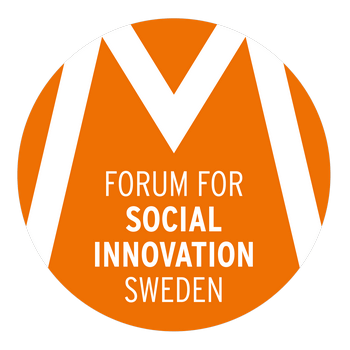Partners
The EU Members States that participate in BuiCaSuS are Spain, France, Latvia and Sweden. We represent more than 126 million of inhabitants and 28.2% of the EU population.
This consortium includes a significant variety of organisations in terms of maturity, profile, financing structure – public, private, third-sector and otherwise- and implementation experience. This ensures cross-fertilization and enrichment for our transnational experience exchange.
Within the four countries of this proposal there is also a variety of organizations promoting social innovation that can contribute to the objectives of this project. Based on pragmatic criteria, a selection of these organizations has been invited to participate in the consortium as associate organizations.
As a diverse project we encourage to consider new modalities of cooperation to overcome well-known stalemates of social welfare reform due to policy fragmentation.
We meet to generate a shared understanding on SI. This is meant to inform the social innovation actors in Europe as well as the ESF+ funding window for the future.
BuiCaSuS Partners’ ultimate aim is to have a structured discussion on the institutional features, organizational requirements and practical equipment with skills and knowledge for a National Competence Centre for Social Innovation (CCSI).
Spain
The Spanish ESF Managing Authority is the institution responsible for managing ESF in Spain. Several of their 23 Operational Programmes (OP) in Spain develop social innovation action.
Furthermore, the POISES (Operational Programme for Social Inclusion and Social Economy) which is managed directly by the UAFSE, has a specific objective on social innovation and has been promoting social innovation projects since 2015 in close cooperation with a selection on NGOs and other partners.
Team Leader: Cristina Marugán, cristina.marugan@mites.gob.es
The Spanish State Secretary of Social Rights is the key actor of social policy formulation within the Spanish Government and main oversight body for social services, social inclusion programmes, and action for welfare in key areas such as care and long term care policies, elderly, disability, child protection, ethnic minorities, minimum income system and activation etc.
The SSSR supports and distributes funds for social policies, social inclusion and SI initiatives in close cooperation with the regional, local
and civil society organisations in Spain.
Team Leader: Berta González, bgonzaleza@mdsocialesa2030.gob.es
Latvia
The Society Integration Foundation is a Foundation that financially supports and promotes cohesive society and public integration in accordance with state planning documents.
The Foundation’s tasks include raising, safeguarding, managing, and distributing funds for the implementation of public policies for public and non-government
development projects, including projects aiming at supporting local, regional, and national media in this area of action.
Team Leader: Līga Martinsone, liga.martinsone@sif.gov.lv.
France
The role of Avise is to enable the development of the social and solidarity economy (SSE) and social innovation in France by providing project owners with resources and helping to build a supportive ecosystem.
Created in 2002, Avise is a non-profit agency working with public and private sector organisations committed to serving the public interest.
Avise is involved at each stage of the life cycle of an SSE enterprise from its initial creation right through to the maximisation of its social impact, by producing tools, managing communities of local bodies and setting up specific support schemes.
In addition to its role in fostering the development of the Social and Solidarity Economy (SSE), Avise has been an intermediate body for the European Social Fund (ESF) at national level since 2004. This involves funding initiatives aiming to create, safeguard and develop jobs in the SSE based on calls for projects.
Team Leader: Marielle Zieds, marielle.zieds@avise.org
Sweden
The Forum for Social Innovation Sweden is a national knowledge and collaboration platform for social innovation and social enterprise in Sweden. Founded at Malmö University and developed in close collaboration with the City of Malmö since 2010.
The forum today is established across the country through hubs at the five universities in Sweden: Jönköping University, Luleå University of Technology, Malmö University, Umeå University and Örebro University.
Through different meeting arenas and methods, publications and other knowledge productions, in close collaboration with stakeholders from all sectors, Forum for Social Innovation Sweden share and develop knowledge and experiences and create spaces where actors across sectors can meet and exchange ideas and best-practices in the field of social innovation.
Team Leader: Anna Tengqvist, anna.tengqvist@mau.se
Inkludera is a non-profit organisation that, since 2011, has built key
expertise in assisting social entrepreneurs and foundations to professionalize, scale and replicate in Sweden.
Social entrepreneurs supported by Inkludera today has agreements with over 80 municipal governments across Sweden.
Team Leader: Anna Nelson, anna@inkludera.se
Reach for Change is an international non-profit founded in 2010 by successful entrepreneurs in the non-profit and the business sectors of Sweden.
RfC finds local social entrepreneurs and empowers them to develop and scale innovative solutions that help children to better lives, and currently has supported more than 1,000 social entrepreneurs in 18 countries across three continents.
Team Leader: Nicklas Wallberg, nicklas.wallberg@reachforchange.org
Associated Organisations
All of them contribute to the preparation, testing, transfer or upscaling social innovation projects. They are also relevant parties in the transfer of experiences, tools and methods in the discussion of the “how to develop or strengthen” CCSI (Competence Centres for Social Innovation) in their respective countries.







